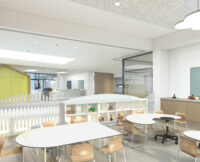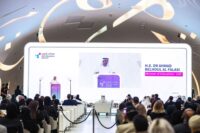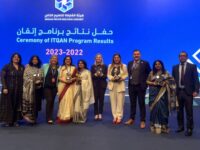Rather than relying solely on traditional methods, teachers are leveraging games, puzzles, and interactive simulations to ignite curiosity for maths among students
Dubai, Mar 15, 2024: Schools around the world celebrated numbers on the occasion of the International Day of Mathematics (IDM) on March 14, bringing back the focus on fostering love for the subject.
Rather than relying only on traditional methods, teachers are leveraging games, puzzles, and interactive simulations to spark curiosity and ignite mathematical thinking among students.
The theme for this year’s celebration was ‘Playing with Math’ with an aim to integrate interactive maths games, traditional board and card games and modern digital platforms, puzzles and other entertaining activities, thereby encouraging students to explore, experiment, and discover. How to enjoy mathematics.
March 14 is also celebrated as Pi Day as when written in the month and date format (MM/DD), it represents the value of Pi, which is 3.14.
Pi-themed activities and competitions are being organised, in an effort to connect mathematics to real-world applications.
Drawing from the principles of inquiry-based learning to cultivate a deep-rooted understanding of mathematical concepts, a sense of ownership and enthusiasm is also being fostered among students.
Several educationists told Education Middle East about ways their institutions have been fostering the element of fun and ease into maths learning.

Jamie Baker Beall, Head of Maths, Swiss International Scientific School – Dubai says, “Pi Day is set to be an engaging celebration of mathematical prowess and camaraderie at our school. The day will unfold with a series of pi-themed activities, with students eagerly participating in a competition to recite as many digits of pi as possible. The highlight of the event this year is the unconventional twist in the competition’s rewards. Winners of the pi-recitation challenge will earn the exclusive opportunity to playfully place a cream pie in the faces of their teachers. This spirited and humorous element adds an extra layer of excitement to the celebration.”
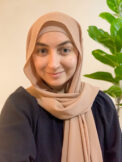
Whitney Edmondson, Learning & Teaching Lead for Maths, Raha International School says, “Our approach centers on connecting mathematics to real-world applications, answering the essential question of “Why?” and demonstrating its relevance in everyday life. They dive into an array of inquiry-based projects that tries to bring mathematics to life. They become architects, using geometry to design city layouts, and chefs who analyse data to craft culturally diverse menus for the school canteen. They step into the shoes of entrepreneurs, developing business models based on linear relationships, and game designers, using probability to create engaging experiences. Trigonometry comes alive as they pitch designs for a zip line adventure for their chosen emirate, integrating their knowledge of topography with math.”
Through these projects, our students see math not as a set of abstract concepts but as an essential toolkit for solving practical problems, says Edmondson.

Daniel Marshall, Head of Mathematics, GEMS World Academy – Abu Dhabi says they are prioritising engagement and active participation in mathematics lessons.
“By posing open-ended questions and allowing students to explore multiple pathways to solutions and apply their learning skills, educators are nurturing critical thinking skills and empowering students to become active participants in their own learning journey.”
From interactive memory call games such as Blooket to adapted battleship games involving coordinates, these activities make learning enjoyable, and instil essential mathematical concepts in a memorable and practical manner. Our attempt is to leverage games, puzzles, and interactive simulations to spark curiosity and ignite mathematical thinking.
Marshall also stressed on the importance of Inquiry based learning – a cornerstone of the IB curriculum – which encourages students to explore mathematical concepts through hands-on experimentation and real-world problem-solving.
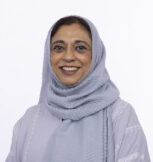
Smara Ghafoor, Head of STEAM (Junior Schools), Misk Schools, Riyadh, Saudi Arabia says math or for that matter all learning is effective only when it is relatable, experiential and fun. “In PreK and KG, they play with geometric symbols and shapes, building structures and figures to bring in elements of science and engineering.
In the primary years, we use online gaming platforms and quiz-style learning tools to teach reasoning, problem solving and critical thinking. We also use maths games and resources from Cambridge, creating our own versions tailored to each aspect of student learning,” she says adding that national and international maths days are a great opportunity to run activities like scavenger hunts, reinforcing key lessons in a playful environment.

Thomas Short, Primary Mathematics Lead, GEMS FirstPoint School – The Villa says they have fully embraced the theme of ‘playing with maths’ by integrating playful activities into the curriculum to engage students in mathematics.
“Annually, we host a Shape Day, where students from Foundation Stage to Year 6 participate in hands-on problem-solving and discussions centred on geometry. This allows students to explore construction links and geometric principles collaboratively.
We foster whole-school collaboration across Phases 1 and 2, providing opportunities for students to work with length, statistics, scales, and conversions; this being exemplified in our recent STREAM project. Through collaborative, age-appropriate tasks, students learnt to present data and make connections between mathematical concepts and everyday experiences.

Andrew Clifford, Head of Mathematics, Horizon International School says, “The reason we learn Maths is because it is a great vehicle for learning how to think about things critically, logically, systematically and strategically. Another slightly more cheerful upshot of being a good mathematician is that by being better at thinking, you generally get better at winning.”
“Being able to think effectively is what leads us to become competent problem solvers. Not “Tom has 5 blue pens and 3 green pens…” sort of problems, but tangible, important real-world problems: what’s the best way of getting humanitarian aid into this war zone? What’s the best way of ensuring the efficacy of this vaccination programme?” he says.
According to him curriculum is designed to ensure that Key Stage 3 students have opportunities to explicitly develop the effectiveness of their thinking, sometimes through playing games. “Simple but strategic games such as Nim, allow students to think about why they lost or why they won, to think about spotting patterns and coming up with an effective strategy. Once they can master this, they become very difficult to beat.” he adds.

Thomas Mason, Head of Maths, Horizon English School says the school aims to cultivate a love for mathematics in a way that is both engaging and playful. “Our approach integrates fun and interactive experiences seamlessly into the curriculum, with the aim being to ensure that every child has fun with maths! One way we achieve this is using games and puzzles.
We also utilise manipulatives and hands-on materials extensively in our classrooms.
By ensuring playfulness is at the heart of our maths curriculum, we create an environment where students feel motivated to explore, discover, and excel, laying a strong foundation for their future mathematical success.” he says.

Thomas Keech, Primary Assistant Head for Teaching and Learning, GEMS Wellington School – Qatar says the emphasis is on embracing the joy of learning mathematics by infusing the curriculum with playful activities. “This is in line with this year’s theme of ‘playing with maths’
“We set up interactive maths centres throughout our classrooms, where students explore different concepts through puzzles, manipulatives, and hands-on challenges, fostering a deep understanding of mathematical principles.
We also emphasise teamwork and practical application of maths through competitions and outdoor mathematical explorations. This not only brings the excitement of healthy competition but also demonstrates the real-world applications of mathematical concepts.” he says.
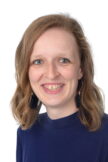
Lizahn Jordaan, Head of Department Mathematics, Dubai International Academy Al Barsha says they incorporate many online platforms to make math learning enjoyable.
“For our senior students, we use online graphing software to create pictures using functions. This lets students practice their function transformation skills, and often leads to them discovering functions outside of the syllabus as they look for specific shapes to complete their designs. In middle school, we enjoy treasure hunts, where students move around the building, solving math problems to find the next one. There is always a buzz of energy on treasure hunt day.”
Additionally, she says activities like colour-by-number, crossnumber puzzles, codebreaker challenges, and ‘last person standing’ challenges help keep the math lessons lively and engaging.
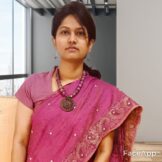
Mahalakshmi Ravindran, HOD Mathematics, Delhi Private School Dubai says the school designs math curriculum to teach a variety of concepts for developing essential mathematical skills using innovative activities and games.
“Our playway method of teaching nurtures the mathematical instincts in our children. Our students build an understanding of mathematical concepts by actively engaging in tasks and experiences designed to deepen and connect their knowledge from integrative math games, puzzles, board games, and digital platforms.
The school organises math interschool competitions, Math Quiz, Multidisciplinary Annual Day, Math Week. These events help students to showcase their creativity and problem-solving skills and encourage them to explore mathematical concepts in a fun and engaging manner.

Sean Williams, Head of STEM, Cheltenham Muscat says, For us, mathematics isn’t just about numbers and formulas but a playground of exploration and discovery. Whether it’s using building blocks to understand geometry or playing maths-based board games for problem solving skills, every activity is designed to make learning enjoyable.
All our lessons begin with a mental maths starter where our students participate in friendly competitions that promote teamwork and critical thinking. Additionally, our maths trail and treasure hunt outdoor activities integrate mathematics with the real world, allowing students to apply their knowledge in practical scenarios.
According to him, teachers are trained to infuse excitement into every lesson, turning traditional math classes into dynamic learning experiences.



